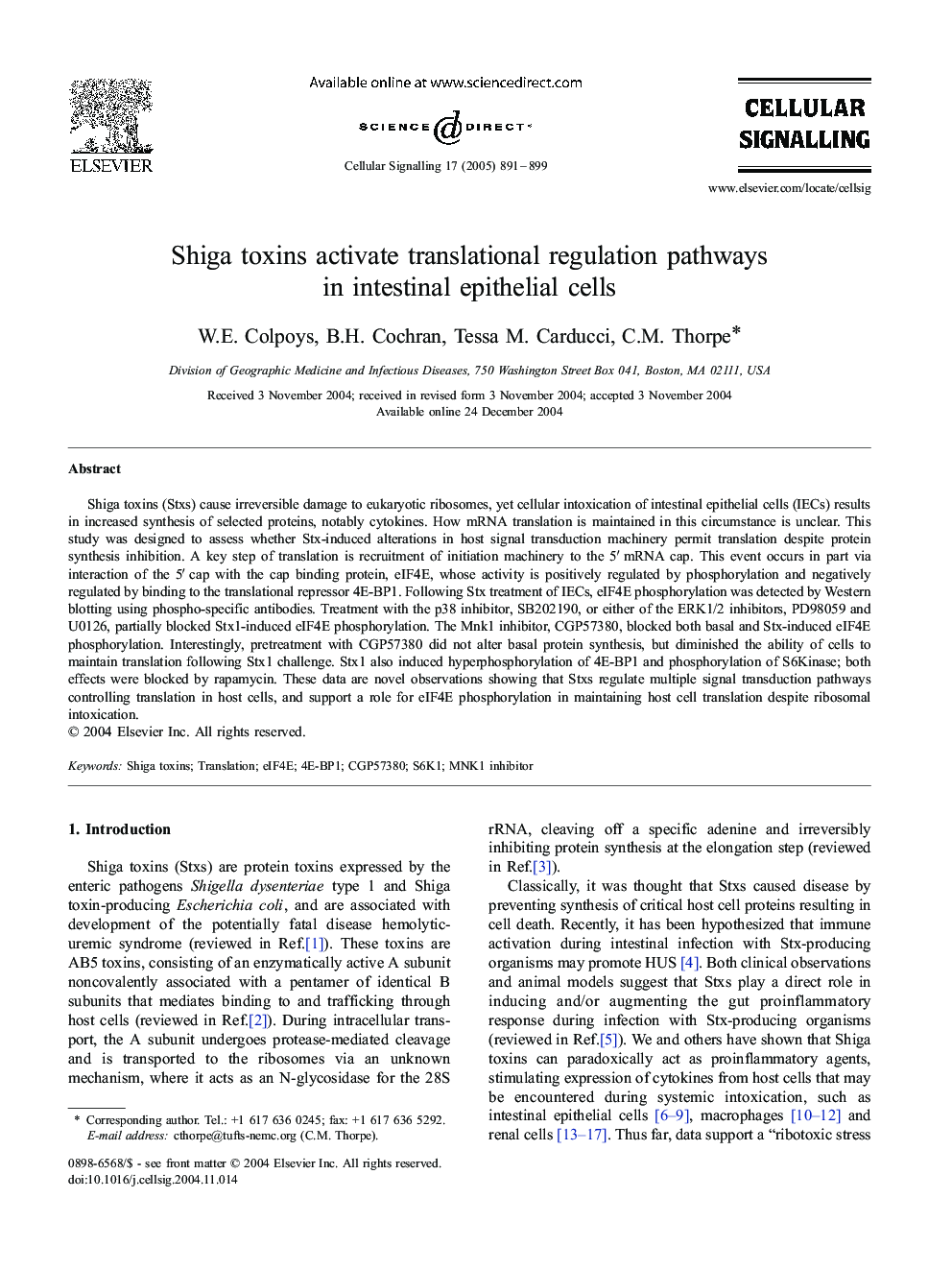| Article ID | Journal | Published Year | Pages | File Type |
|---|---|---|---|---|
| 10817116 | Cellular Signalling | 2005 | 9 Pages |
Abstract
Shiga toxins (Stxs) cause irreversible damage to eukaryotic ribosomes, yet cellular intoxication of intestinal epithelial cells (IECs) results in increased synthesis of selected proteins, notably cytokines. How mRNA translation is maintained in this circumstance is unclear. This study was designed to assess whether Stx-induced alterations in host signal transduction machinery permit translation despite protein synthesis inhibition. A key step of translation is recruitment of initiation machinery to the 5â² mRNA cap. This event occurs in part via interaction of the 5â² cap with the cap binding protein, eIF4E, whose activity is positively regulated by phosphorylation and negatively regulated by binding to the translational repressor 4E-BP1. Following Stx treatment of IECs, eIF4E phosphorylation was detected by Western blotting using phospho-specific antibodies. Treatment with the p38 inhibitor, SB202190, or either of the ERK1/2 inhibitors, PD98059 and U0126, partially blocked Stx1-induced eIF4E phosphorylation. The Mnk1 inhibitor, CGP57380, blocked both basal and Stx-induced eIF4E phosphorylation. Interestingly, pretreatment with CGP57380 did not alter basal protein synthesis, but diminished the ability of cells to maintain translation following Stx1 challenge. Stx1 also induced hyperphosphorylation of 4E-BP1 and phosphorylation of S6Kinase; both effects were blocked by rapamycin. These data are novel observations showing that Stxs regulate multiple signal transduction pathways controlling translation in host cells, and support a role for eIF4E phosphorylation in maintaining host cell translation despite ribosomal intoxication.
Related Topics
Life Sciences
Biochemistry, Genetics and Molecular Biology
Biochemistry
Authors
W.E. Colpoys, B.H. Cochran, Tessa M. Carducci, C.M. Thorpe,
